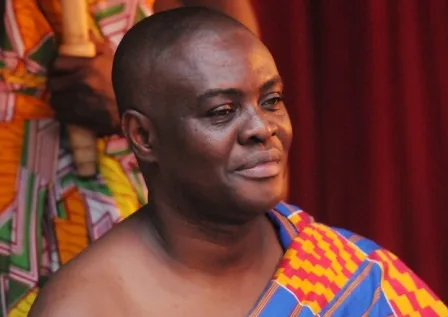Dormaahene, Osagyefo Oseadeeyo Agyemang Badu II, has urged President Akufo-Addo to promptly sign the anti-LGBT+ Bill once the ongoing legal proceedings conclude in the Supreme Court.
Addressing the media on March 25, 2024, Dormaahene Agyemang Badu II expressed concern about potential damage to the president’s legacy if he refrains from endorsing the bill.
He emphasized the significance of President Akufo-Addo leaving behind a positive legacy during his remaining tenure.
“Both the Majority and Minority in Parliament have agreed to pass the Anti-LGBT+ Bill and presented it to the president for his assent but the signing of the bill has become an issue.
“If things aren’t going right, I, Agyeman Badu II, I will say it because you are my family member (Akufo-Addo). If Ghanaians cannot tell you, I will do that.
“You have nine months to end your tenure. I don’t want you to be disgraced. Don’t let them push you into doing things,” he said.
Dormaahene Agyeman Badu II urged President Akufo-Addo not to yield to external pressures or accept any form of inducement that could potentially compromise his stance on the Bill.
He cautioned against associating the president’s name with support for LGBT+ activities, particularly during his retirement.
“Let not it be said that you took money to not sign the bill, don’t let such a bad name be associated with you in your last days.
“I have heard the issue is in court, and I plead with the Supreme Court that some of us are following the law… the moment Supreme Court delivers its judgment, please sign the bill because we won’t allow anybody delaying the bill unless we are gunned down, and I don’t believe we will be gunned down because of the bill,” he added.
The anti-LGBT+ Bill, as passed by Parliament, proscribes LGBT activities and criminalizes their promotion, advocacy, and funding.
Persons caught in these acts would be subjected to six months to a three-year jail term, with promoters and sponsors bearing a three to five-year jail term.
President Akufo-Addo has suspended his decision on whether or not to sign the Bill into law, citing a challenge to its constitutionality in the Supreme Court.
Even if he decides against it, MPs can, by a two-thirds majority, veto the president’s decision and make the provisions of the Bill enforceable.

